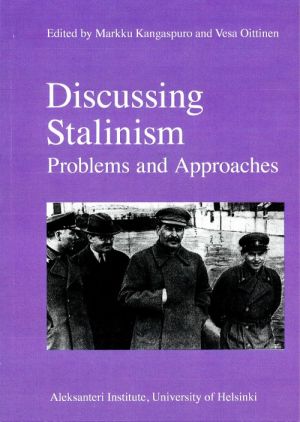The nature of the phenomenon called Stalinism has since long been subject to debates among historians, philosophers and political theorists. Although the scholars have agreed on many of its main traits - such as one-party dictatorship and politically motivated terror - there are yet many open questions and no final consensus has been reached. The explanatory power of the old totalitarianism theory has proved to be insufficient, but the new interpretations contesting it are yet open to discussion. In this volume, based on a symposium organized by the Aleksanteri Institute, six scholars representing different fields of social research are presenting their points of view on the "Stalinism phenomenon".
Contributors
Lennart Samuelson
Mikhail Maslovskiy
Markku Kangaspuro
Vesa Oittinen
Ian Lauchlan
Carlos Eduiardo Rebello de Mendonca
The nature of the phenomenon called Stalinism has since long been subject to debates among historians, philosophers and political theorists. Although the scholars have agreed on many of its main traits - such as one-party dictatorship and politically motivated terror - there are yet many open questions and no final consensus has been reached. The explanatory power of the old totalitarianism theory has proved to be insufficient, but the new interpretations contesting it are yet open to discussion. In this volume, based on a symposium organized by the Aleksanteri Institute, six scholars representing different fields of social research are presenting their points of view on the "Stalinism phenomenon".
Contributors
Lennart Samuelson
Mikhail Maslovskiy
Markku Kangaspuro
Vesa Oittinen
Ian Lauchlan
Carlos Eduiardo Rebello de Mendonca














